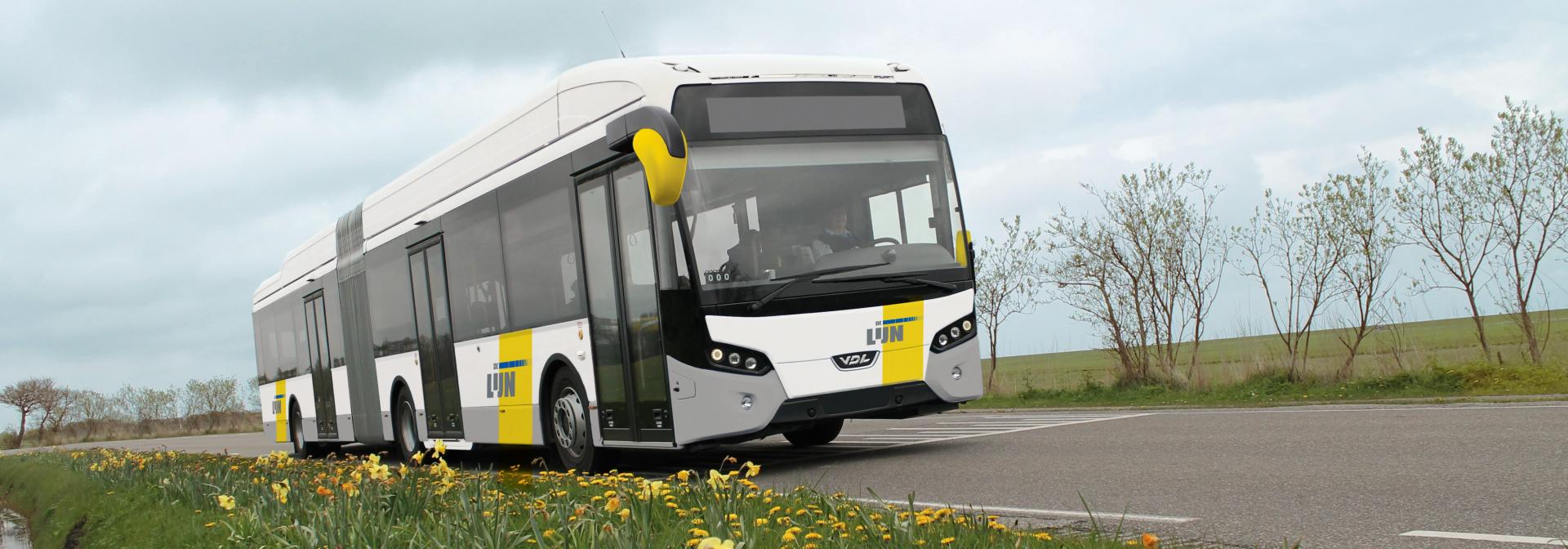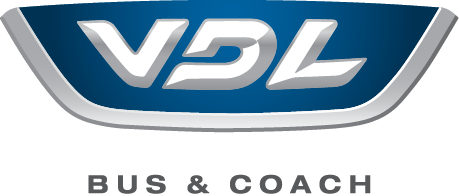
Greening public transport: De Lijn and VDL Bus & Coach take next step with 70 hybrid buses
The cooperation between the Belgian passenger transport company De Lijn and VDL is set to continue with an order for 70 hybrid buses. The Citeas SLFA-180 Hybrid will be delivered in the second half of 2021 and will operate at various locations in Flanders. The aim is to offer electric transport in all 13 central cities by 2025. Priority will be given to the low emission zones of Brussels and Antwerp. The order is part of a framework agreement for the purchase of 400 buses that was awarded to VDL last year.
Roger Kesteloot, Director-General De Lijn: “Hybrid buses are a big step forward in the greening of public transport. The order for these 70 hybrid buses fits in with our plans to speed up the greening and rejuvenation of the bus fleet. This is necessary because we want to be operating fully electric in all central cities by 2025. The new order follows an earlier one for 200 hybrids at the end of 2019. A total of 270 new hybrid buses are expected between 2020 and 2022. About 1 bus in 3 of De Lijn’s buses will operate green.”
Filip Malefason, director VDL Bus & Coach Belgium: “De Lijn has already ordered a total of 890 vehicles from VDL Bus & Coach since 2014. With this order, the share of electrically powered buses is growing steadily and Flanders is becoming increasingly greener. VDL Bus & Coach is proud that, together with De Lijn, we are able to realise the transition from diesel buses, over hybrid electric buses to full electric buses. In addition to the greening of public transport in Flanders, hybrid buses also emit less noise compared to conventional diesel buses. The hybrid buses will be produced at VDL Bus Roeselare, our Belgian production company. “It’s nice to see that the vehicles are going to be built and used locally.”
Hybrid concept for De Lijn
This generation of hybrid Citeas has been developed on the basis of the experiences that De Lijn and VDL Bus & Coach have gained with the vehicles delivered in the past. The hybrid articulated Low Floor Citea has the same electric powertrain as the Citea Electric. Thanks to a new and compact ‘High-Power’ battery technology, this hybrid vehicle can be used as a full electric bus in city centres and low emission zones. De Lijn has opted for a high battery capacity so that the buses with fully charged batteries can run fully electrically over distances of up to 30 kilometres. All hybrid buses are supported by a generator that meets the strictest current European environmental standards and can be switched on to recharge the batteries as required. In addition, the batteries can be charged via a CCS Combo2 charging plug.
In the future, the electrical autonomy of hybrid buses can be further increased by extending them with a fast charging option. This would allow the buses to be loaded by means of a pantograph integrated into the charging infrastructure.
Electrically powered Citeas
This follow-up order consists of 70 Citeas SLFA-180 Hybrid. The articulated low floor bus has a 240 kW electric motor combined with a 64 kWh ‘High-Power’ battery pack. In addition, all hybrid buses are equipped with a 180 kW, 4-cylinder Euro 6 generator that can power the battery. Thanks to the combination of a serial hybrid system with a high-tech battery pack, the new generation of hybrid Citeas can drive electrically more than half the time.
VVM De Lijn
De Lijn is the Flemish public company that provides public transport by bus and tram in Flanders. Approximately 3.5 million people use De Lijn's services one or more times per year. For its operation, the transport company receives an allocation from the Flemish Region, the main shareholder. The sale of tickets is the second source of income. The De Lijn network comprises approximately 1,000 lines and 36,000 stops. All in all, the buses and trams provide around 11 million passenger journeys per year. Its own fleet consists of 2,250 buses and 400 trams. The private companies that operate on behalf of De Lijn also have their own buses. They account for half of the bus kilometres. With over 8,000 employees, De Lijn is one of the largest employers in the country. The private operators employ a further 2,000 people. As main shareholder of the Blue-bike bikeshare company, De Lijn promotes and supports combi mobility. This allows passengers to combine a bus or tram ride with a shared bike for the last part of their journey.
